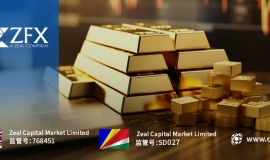Register now, make more friends, enjoy more functions, and let you play in the community easily.
You need Sign in Can be downloaded or viewed without an account?Register Now 
x
When the stock market is in a bull market frenzy, what investors love most is to boost morale, promote hot topics, and talk about bull stocks. However, at this time, stock prices are mostly at high levels and not worth investing in. What is needed most at this time is to pour cold water and call for calmness; It is also known that during a downturn in the market, the most reassuring articles for investors are those criticizing regulation and whipping market mechanisms. However, the most reliable articles at this time should help investors summarize their experiences and lessons, find valuable targets to prepare for the next bull market. But are you willing to read such articles during a downturn in the stock market?
Remember to leave it at2017At the beginning of the year, some "scholars" claimed“AThe reason for the sluggish stock market is the continuous issuance of new shares, which has become a popular trend among internet celebrities who demand regulators to immediately stop issuing new shares in response to public opinion. The background isAStock market2015year6After the foam of small and medium-sized enterprises burst in August, investors suffered a lot of losses in the long return journey, so the "experts" who called for the immediate stop of issuing new shares were praised. In fact, we know that it is precisely the regulation of new stock issuance that leads toAThe long-term overvaluation of most stocks in the stock market is the fundamental reason for the long bear market. The normal supply of new stocks like live water is conducive to reducing market valuations, improving quality, and completing the value return process as soon as possible to end the bear market. As a result, those who loudly spoke reliable logic at that time were often disliked by the public like children who said "the emperor is not wearing clothes".
By the way, to this day, the issuance of new shares has become normalized with the promotion of the "registration system", and the stock market has also completed the transition from a bear market to a bull market. Today, there are no more internet celebrity "experts" calling for the suspension of new share issuance to rescue the market.
Recently, there has been a very peculiar phenomenon in the market, which is that some listed companies with good business performance and reasonable valuations lack investor interest, such as the most outstanding leading companies in the banking, insurance, and real estate industries, with price to earnings ratios all below10About times, which means assuming future performance0Value added, investors can recoup their profits within ten years by sharing the company's operating profits. However, these three good companies are considered "three fools" by many. However, the consumer, healthcare, technology, and entrepreneurship sectors, which investors expect to not be able to recoup in a hundred years, are considered the "Four Handsome" when their P/E ratio is 100 times or higher. Is this a divine logic?
Obviously, this cannot be considered as investment logic at all, it is just a concept of "speculation in stocks". People will definitely say that stocks are used for speculation. In everyone's impression, in the domestic market, only by speculating in stocks can one become rich, and those who own stocks for a long time are fools.
What about the real situation? I visited the China Securities Museum located at the Pujiang Hotel in Shanghai with my family over the weekend1990year12month19The original address of the Shanghai Stock Exchange, which opened on the same day. As a1992Old investors who have been fully involved in the Chinese securities market since the beginning of the year have revisited crowded order counters, manual quotations, ancient trading halls, red and yellow vests, former bullies in the market, Shanghai's old eight stocks, Shenzhen's old five stocks, and many other historical artifacts, and have gained a lot of insights.
1、 In the long run, speculating in stocks does not necessarily lead to wealth
I participate in domestic stock investment28Over the years, there have been many investment gurus of all kinds, and there have indeed been those who have made rapid gains in the short term. However, the outcome is often "where the money is earned, it is returned". There are also those who disappeared due to insider trading and were arrested for manipulating the market and imprisoned. Obviously, investment is a marathon. A few quick sprints won't solve the problem.
Of course, I have also had the privilege of meeting many "winners" who have truly achieved financial freedom through the stock market. They are either company owners who have been running their own businesses for a long time since the beginning of entrepreneurship and hold shares in the company; Either it is because I am a senior employee of a listed company who feels embarrassed to sell shares and is forced to hold it for a long time. They do not participate in buying and selling such speculative stocks, but become wealthy due to long-term ownership of stocks.
2、 Overall,AStocks are not incapable of long-term investment
Shanghai Stock Exchange1990year12month19The first batch of eight listed enterprises (Yanzhong Industry, Shenhua Electrician, Feile Shares, Feile Audio, Yu Garden Shopping Mall, Aishi Electronics, Vacuum Electronics, Zhejiang Phoenix) were called "old eight stocks". People with a mind made a statistic that if they bought the capital equally at that time, they would hold2015In the darkest moments after the stock market crash in the second half of the year, the annualized yield also showed24.8%. And the globally recognized stock god Buffett's annualized return rate for over 40 years is only19%It's just that.
From another perspective, it can also illustrate the issue. When the Shanghai Composite Index opened, it was100Point, and now it's3300Point left and right(2020year8month9Daily data), with returns exceeding thirty times in less than thirty years, and an annualized rate of return of approximately12.5%. Not to mention the cash dividends of listed companies over the past thirty years.
3、 Long term ownership, good companies make investors wealthy
To achieve long-term investment success, investors should have an industrial mindset in their thinking. That is to say, treating oneself as the boss of a listed company, fully understanding the company, owning it for the long term, and sharing the company's operating profits. By investing in stocks with an industrial mindset, one can achieve the goal of "selecting" good companies, then "waiting" to buy cheap goods, and then having enough patience to hold onto them for a long time. They are also willing to invest heavily and concentrate their investments.
Among the top five stocks in the Shenzhen market (Shenzhen Development, Vanke, Jintian, Anda, and Yuanye), the first two are good companies that can help long-term owners achieve wealth. Shenzhen Development Bank (now Ping An Bank) and Vanke Today(2020year8month9The restoration prices for Japanese are all within2500About yuan, that is to say, from1990Since its listing at the end of the year, it has brought about approximately2500Multiple times the return.
So, what good companies in the future can make long-term investors who own them wealthy? I believe that certainty is precisely among these currently disliked "three fools". People may say that banking, insurance, and real estate only represent the glorious past of China's economy, but I believe that these essential industries not only represent the past of China's economy, but also the present and future of China's economy. Imagine, in a few years, our economic level will surpass that of developed countries. Would that mean we no longer need banking services, insurance coverage, and high-quality housing? On the contrary! At that time, our industries will be elevated to the world's most advanced level, and the leaders in these industries will also become global leaders.
Another fact that investors are not necessarily willing to accept is that, at all times and in all over the world, the bright foam will burst every time.1999-2000The NASDAQ high-tech foam in the US stock market2001According to data from Panorama Network, the year was shattered, and2002At the end of the year, at1995-2000Among the companies listed this year, there are50%It has disappeared,72%Stock price belowIPOPrice. reach2019At the end of the year,1999year-2001Listed during the year899Among technology companies, only61The family still exists, with a survival rate of only6.8%. andAThe ChiNext board of stocks2014-2015In the bull market of the year, valuations also peaked at the average price to earnings ratio140What is the result, times? But today, a large number of bull stocks that once blinded everyone's eyes (such as LeEco, Storm Technology, etc.) have disappeared without a trace.
Therefore, I believe that good companies in various industries that have undergone long-term market testing, such as "San Sha", are currently offering reasonable prices due to being unpopular with mainstream investors. If you take advantage of this opportunity to buy and own them for a long time, achieving tenfold returns within a reasonable timeframe is just a "small goal".
Author: Huang Fan |
"Small gifts, come to Huiyi to support me"
No one has offered a reward yet. Give me some support
|


